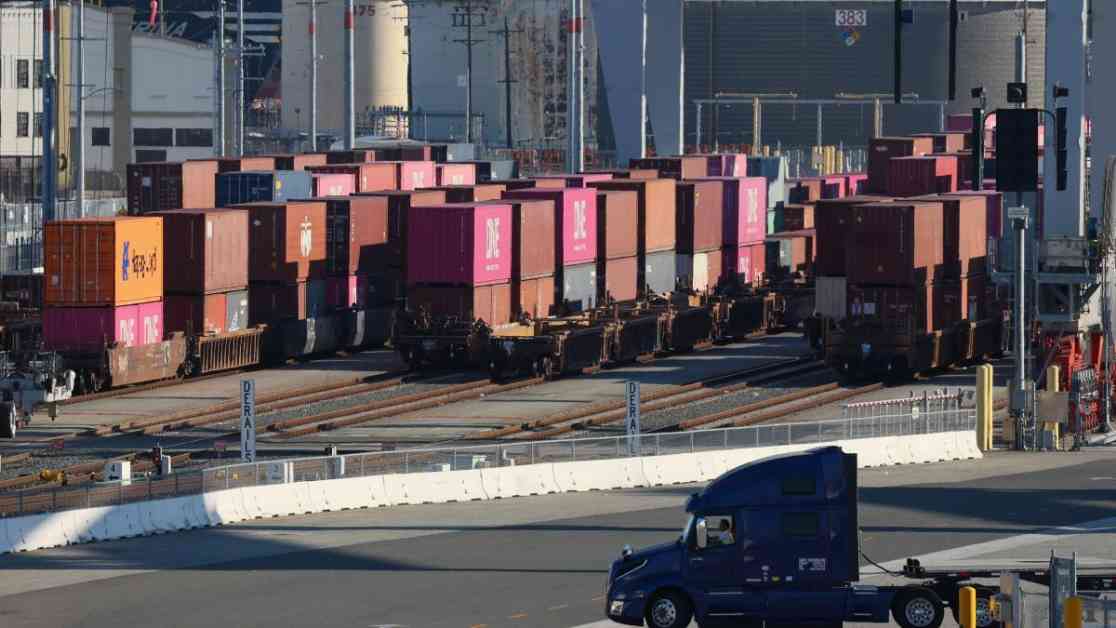World leaders, economists, and investors are grappling with President-elect Donald Trump’s threats to impose significant tariffs on imports to the United States. Trump recently announced that he plans to impose a 25% tariff on goods from Canada and Mexico, citing the need to address issues related to drugs and illegal immigration. Additionally, he threatened a 10% tariff on all goods from China, blaming the country for the production of deadly synthetic opioids like fentanyl.
These threats have raised concerns about the potential impact on global supply chains and the economies of the countries involved. Mexico, in particular, is heavily reliant on exports to the U.S., with 83% of its exports heading north. Even a small increase in tariffs could have a significant impact on Mexico’s economy, leading to higher unemployment and poverty levels.
Mexican President Claudia Sheinbaum had been planning to meet with Trump’s team to discuss tariffs, but Trump’s announcement caught her government off guard. While Sheinbaum did not directly criticize Trump, she warned of retaliatory tariffs on U.S. products entering the Mexican market. She emphasized Mexico’s efforts to address issues like illegal migration and narcotics smuggling, pointing out that the U.S. also plays a role in these problems.
China and Canada, the other top U.S. trading partners, also responded quickly to Trump’s tariff threats. China emphasized the mutually beneficial nature of its economic relationship with the U.S., while Canada highlighted its close ties with Mexico. The potential impact of these tariffs on global trade and supply chains has raised concerns among experts and policymakers.
Trump’s ability to unilaterally impose tariffs is a subject of legal and political debate. He could face challenges from Mexico and Canada under the trade agreement negotiated during his first term. Additionally, lawmakers have introduced legislation to prevent the president from imposing tariffs without congressional approval.
The business community and financial markets are also closely watching Trump’s tariff threats. Auto manufacturers, in particular, are concerned about disruptions to their supply chains and potential price increases for consumers. The broader economic implications of trade skirmishes could lead to higher inflation and interest rates, affecting investors and stock markets.
Some experts believe that Trump may be using tariffs as a negotiating tactic, as he did during his first term with Mexico. His Treasury secretary pick has described tariffs as a tool for achieving foreign policy objectives. However, critics warn that tariffs could lead to trade wars and inflation, impacting global economies.
Addressing issues like illegal migration and narcotics smuggling requires a coordinated effort between the U.S. and its trading partners. Experts point out the complexities of these issues and the challenges of addressing them through tariffs alone. Mexico’s efforts to combat these problems have limitations, and expecting immediate solutions may not be realistic.
As the debate over tariffs continues, it remains uncertain how Trump’s threats will impact global trade and economic relations. The responses from Mexico, China, and Canada reflect the interconnected nature of the global economy and the challenges of addressing complex issues through trade policies alone. Finding sustainable solutions to shared problems will require cooperation and dialogue between nations.



























